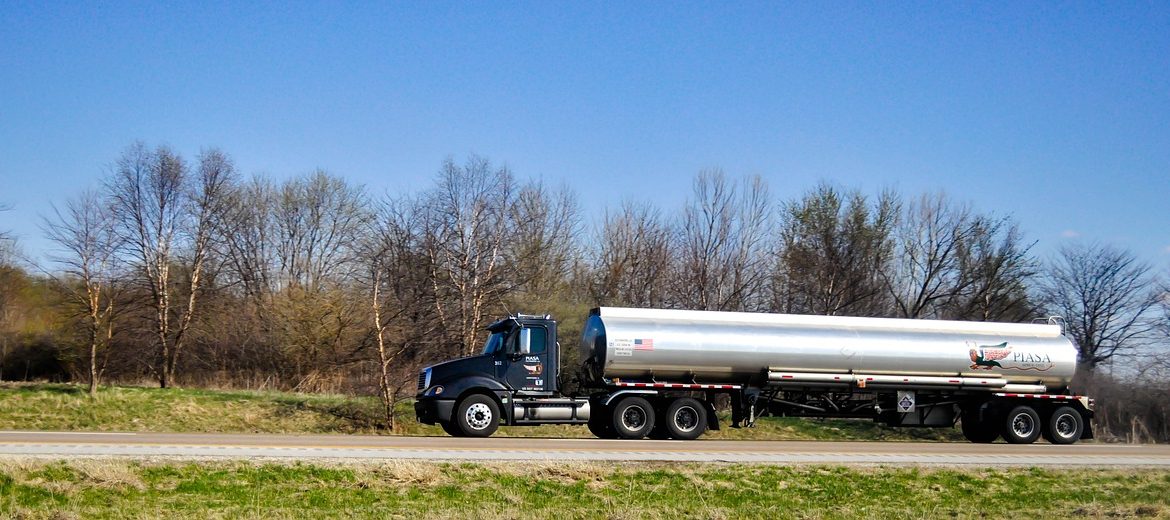Even if you’re new to the trucking industry, you likely know that driving a chemical tanker is one of the best paying but most dangerous jobs available to truckers. People often have a lot of questions when they’re just starting out, such as whether drivers need to have special training or certifications when hauling hazardous materials, and whether such trucks really are more dangerous.
This kind of trucking is known as HAZMAT hauling, and it offers both pros and cons to truck drivers. Even if you don’t intend to drive these kinds of vehicles or loads, it is still smart to understand the rules and regulations involved, as you will almost certainly encounter tankers on the road and it is wise to afford them extra space and consideration.
Drivers who want to build a lucrative career need to stay informed of the range of driving alternatives available to them, just like they need to stay ahead of their financials by educating themselves on all of the various options available for managing their cash and growing their business.
What is HAZMAT trucking?
HAZMAT (an abbreviation of hazardous materials) hauling is a specific type of truck driving that involves the transport of materials that pose some level of risk to both the public and the driver, and therefore must obey special rules when being shipped and require special training on the part of the driver. As such, these types of jobs are not available to everyone with a CDL, and are usually reserved for experienced drivers with special training.
HAZMAT freight gets shipped more often than you might think. In fact, over three billion tons of dangerous materials get transported every year, and more than 90% of that material is hauled in trucks. The majority of the material consists of flammable liquids in tanker trucks, but many other types of HAZMAT materials get hauled as well.
For drivers that have the training, temperament, and driving record to be considered for these jobs, it’s a valuable asset. It means that you have many more job possibilities to choose from, even if you rarely ever haul HAZMAT materials. Knowing that should jobs become more difficult to come by you have the option to take on these types of tasks can provide greater stability and peace of mind.
What types of hazardous materials do truckers haul?
While many people may refer to anything dangerous as a HAZMAT material, the truth is that typically this is a legal designation for materials that have been deemed to pose a risk to the public and thus are subject to special rules while being transported. This includes how the materials are stored and transported, as well as which roads they are allowed to follow, and notification to others on the road that something dangerous is being hauled.
With this in mind, there are nine different classes of HAZMAT freight that are subject to special regulations in the United States. Each category will have its own rules and requirements. The nine classes are:
- Class 1 – Explosive materials
- Class 2 – Gases (further divided into flammable, non-flammable, and toxic)
- Class 3 – Liquids that are flammable and or combustible
- Class 4 – Solids that are flammable or combustible (Also dangerous when wet materials)
- Class 5 – Oxidizers, Organic Peroxides
- Class 6 – Toxic Materials, Infectious Substances
- Class 7 – Radioactive matter
- Class 8 – Corrosive materials
- Class 9 – Miscellaneous
As you can imagine, each of these categories requires special considerations, like the type of trailer involved, the precautions that must be taken in terms of how the materials are stored and cared for, and the training required of the drivers.
What are the dangers involved with driving chemical trucks?
It goes without saying that hazardous materials pose a danger when being transported. But that doesn’t mean that the driver is necessarily at greater risk. One of the perils that may not be immediately obvious is that the locations where these materials are stored, such as the plants where they originate from, are themselves dangerous. Depending upon the location, drivers may be required to wear special protective gear when loading and unloading, and perhaps even during transport.
Another consideration is that often hazardous materials must be transported quickly. Drivers must be prepared to find alternate routes and drive overtime when necessary to make sure the shipments arrive in a timely manner.
In some cases the driver will be responsible for loading and unloading the material. For instance you may need to use a hose or a pump to empty out the tank, and may even need to climb on top of the tanker to open the hatch. On the other hand, many HAZMAT loads are no touch, meaning that the driver is not even allowed to come into contact with the material and all loading and unloading will be handled by the company.
There is also the consideration that must be made for other drivers and passengers on the road. Because hazardous materials by definition pose a risk, it is incumbent upon drivers to be even more cautious than usual when it comes to driving, to avoid an incident at all costs. Even a minor accident can lead to disastrous results if it results in dangerous materials being leaked onto the road and exposing the public.
Does HAZMAT trucking pay more?
In general, the answer is yes, driving HAZMAT materials pays more. Frequently, there is also added benefits that come along with driving such risky cargo. But, at the same time, there may also be more idle time, as for instance you may need to undergo more inspections when carrying such materials. There may also be fewer such jobs compared with regular loads.
So while on a per mile basis, the pay will be higher, you may find your overall salary has not gone up as much as you were expecting because of other factors involved that limit your total take home pay.
Do you need special training and licensing to drive chemical trucks?
As already mentioned HAZMAT hauling requires more training than just a regular Commercial Drivers License. In most cases, a driver will also need a HAZMAT endorsement (Code H) to be qualified for driving HAZMAT shipments. This generally requires passing a HAZMAT knowledge test, though companies that regular deal with HAZMAT materials may have other training requirements as well. The good news is that companies will often pay for your training and testing for you.
In addition, hazardous materials that get transported in tankers require a tanker endorsement as well, known as Code N. This also needs an additional knowledge test. When the HAZMAT and tanker endorsements are earned at the same time, a driver can receive what is known as an X endorsement that will cover all of the various materials previously mentioned.
Is driving a chemical truck worth it?
Ultimately, there are both benefits and disadvantages to driving hazardous materials for a living. One of the benefits that hasn’t already been pointed out is that many of these shipments are local in nature, so drivers are less likely to be driving cross country on a regular basis. As a matter of fact, many HAZMAT drivers find that they get to sleep in their own beds almost every night.
In the end, it’s up to each individual driver to decide whether it’s worth it to get his or her HAZMAT endorsement. Do your homework and find out everything that is involved before making a final decision.
Saint John Capital Supports Truck Drivers
After more than two decades in the trucking industry, Saint John Capital knows the challenges faced by truck drivers, both on the road and off of it. You are experts at what you do, and our job is to make it easier for you to do what you do best, drive trucks. A big part of being able to do that is having the financial stability necessary to maintain and grow your business. The last thing you want to be worried about while driving a chemical tanker is whether you’re going to have enough cash on hand to buy gas.
Because of our great relationships with drivers and fleet operators, we help make it possible for them to always be at the top of their game while on the road. This is made even easier because Saint John Capital has always focused exclusively on the trucking industry. Our tailored services were developed with one goal in mind, to help our customers achieve their financial goals as quickly as possible.
Contact us today to learn more about Saint John Capital products and services.











